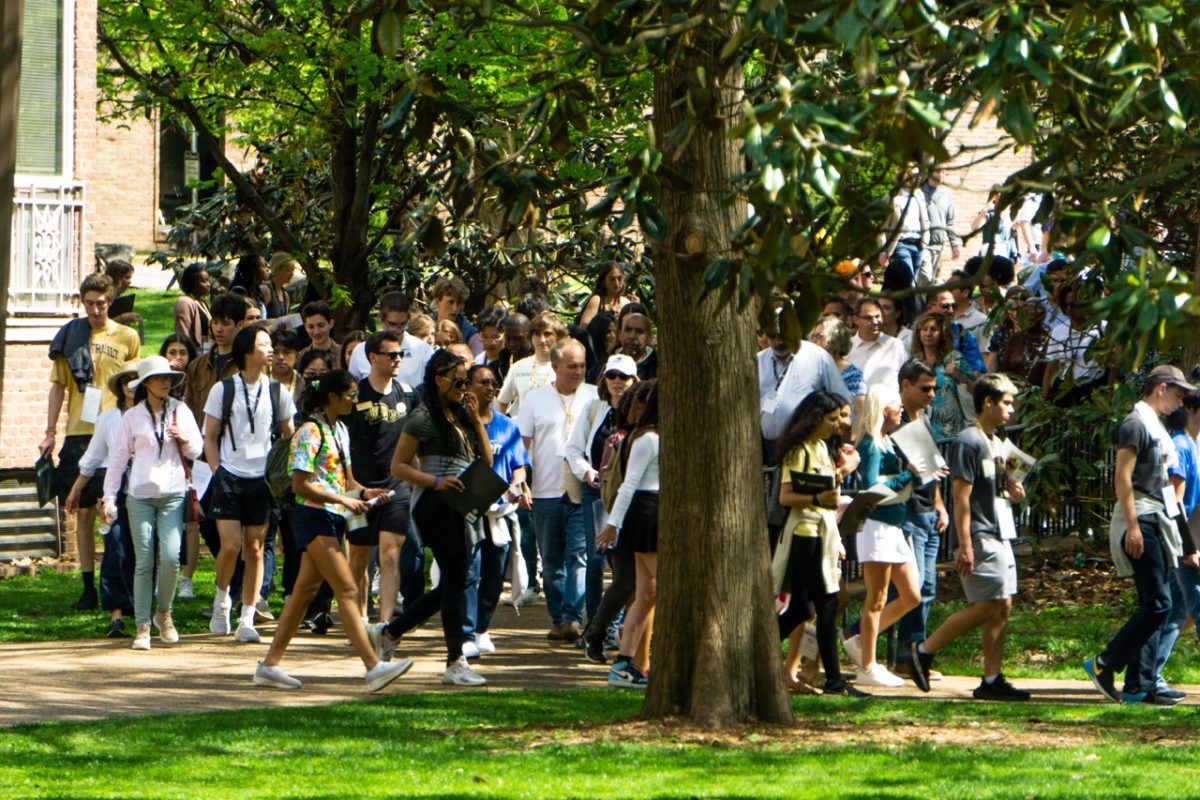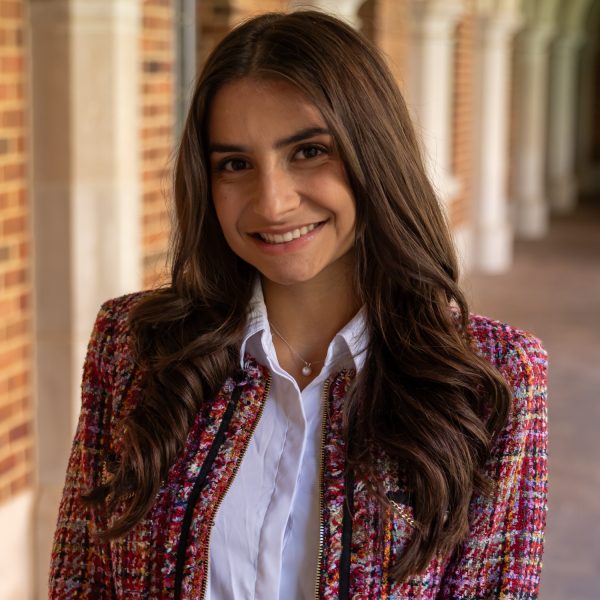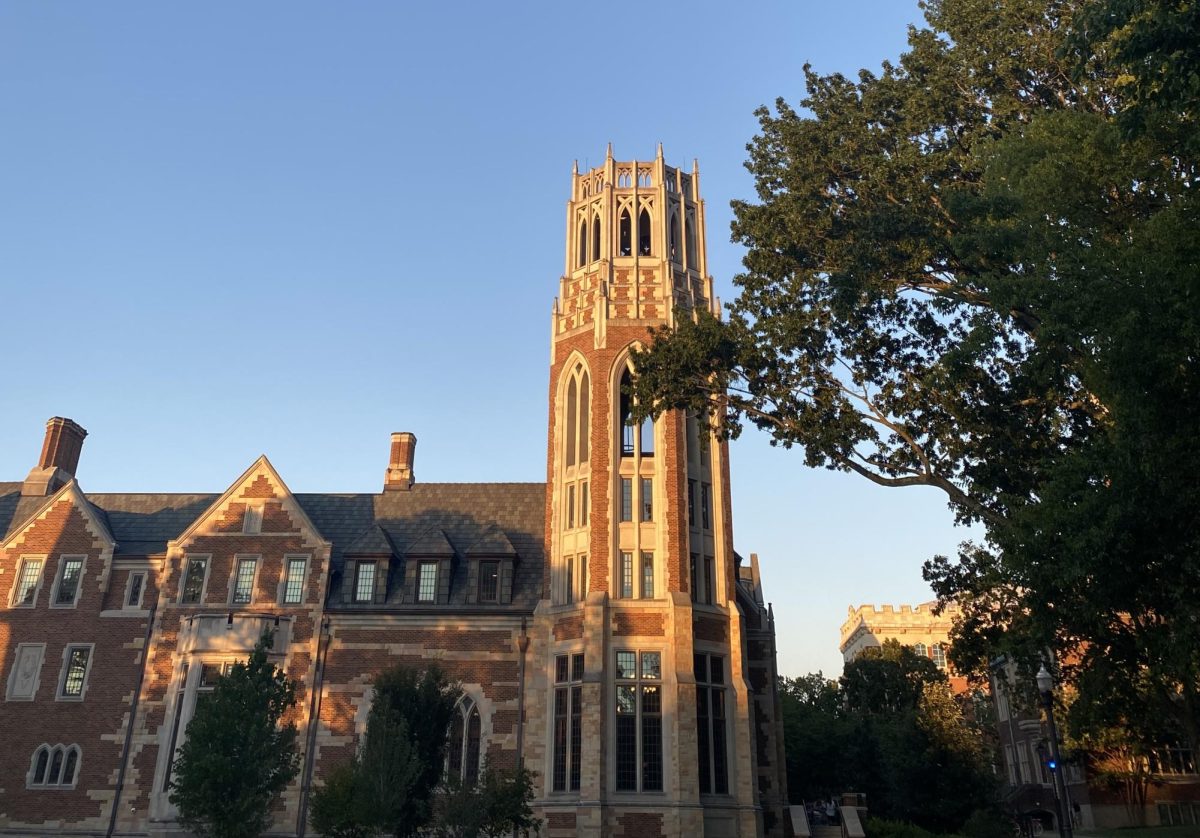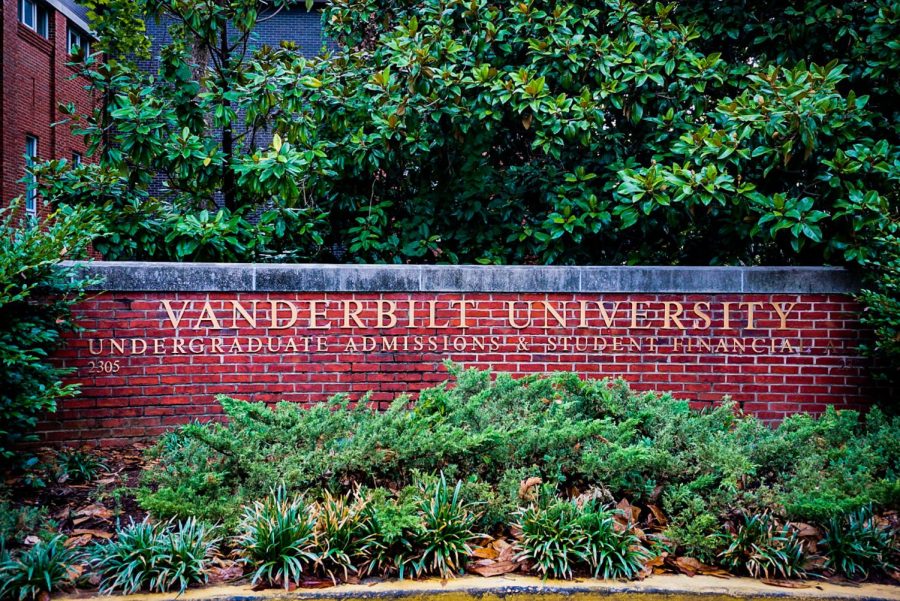Vanderbilt’s admission process has recently been subject to examination following the U.S. Supreme Court striking down affirmative action and the university falling on the 2024 U.S. News Best National Universities ranking, which featured a new methodology intended to emphasize social mobility. Dean of Undergraduate Admissions Doug Christiansen spoke to The Hustler about the Class of 2027’s demographics and the university’s admissions process and initiatives in the wake of this scrutiny.
Christiansen said the university’s focus on diversifying its classes has never wavered.
“Our value system was there before SCOTUS came in,” Christiansen said.
Statistics about the Class of 2027 were finalized after the university’s Fall 2023 census. Early decision I applicants received their admission decision on Dec. 14, but Christiansen said statistics about the EDI cycle will not be published separately. EDI and EDII combined statistics will be published in mid-February.
Racial diversity
For the first time in Vanderbilt’s history, Christiansen said more than half — 50.1% — of the undergraduate student body is of an underrepresented minority racial or multiracial background. He added that the percentage of Asian, Black and Latinx undergraduate students has also risen significantly in the past 15 years and since the 2018-19 academic year.
“You really have seen, in the last decade or decade and a half, the complete change in race and ethnicity on campus,” Christiansen said.
In the wake of the SCOTUS decision, Christiansen said the university has continued general and post-admission marketing geared toward students of underrepresented racial identities but has eliminated race as a factor in the admissions process.
“We do lots of work looking at high schools across the country that might have a higher percentage of underrepresented students,” Christiansen said. “[Our admissions officers] have to make sure that they’re in so many underrepresented or low-income high schools. We’ve had that instituted for 10 years.”
Christiansen added that the university will now decide the student invitees to the MOSAIC program after the admissions process, not during. He explained that, through this program, Vanderbilt previously invited a select group of admitted students with diverse backgrounds who have “given a voice to change or to a group who didn’t have a voice” to campus for a recruitment weekend.
Generations of college access
Christiansen said the percentage of first-generation students at Vanderbilt rose one percentage point since last year to 16.6%.
Vanderbilt continues to consider applicants’ legacy status as one of many factors in its admissions process. Some universities, such as Wesleyan University and Carnegie Mellon University, eliminated legacy status in their admissions processes after the Supreme Court ruling, referring to it as a different kind of affirmative action. Others, particularly Ivy League institutions like Harvard University, Cornell University, Dartmouth College and Brown University have received pushback and even been sued over the inclusion of this factor in admissions.
“Spots are not held for legacy; there is no percentage of legacy students that we are looking for,” Christiansen said. “[Being a legacy] would never make an admit decision by itself.”
Christiansen explained that the university’s desire to create a strong community among students supports its consideration of legacy status in the admissions process. Given that legacy status is “such a small part” of the process, Christiansen admitted that continuing to include it in the process raises questions. He declined to comment directly on whether legacy status is deemed “important” by the admissions committee.
“[We are] trying to understand everything about every applicant,” Christiansen said.
Financial inclusivity
Christiansen said 23% of the Class of 2027 are Pell Grant recipients, and 55.1% of the class receive need-based aid, proportions that have been steadily increasing in recent years. He referred to Opportunity Vanderbilt — Vanderbilt’s financial aid program — as an “investment,” rather than an expense.
“We have steadily been growing but [have] been very purposeful with that change,” Christiansen said.
Among the current undergraduate student body, Christiansen said 64.5% receive some type of financial assistance to attend Vanderbilt, including need-based aid, merit awards, outside scholarships and miscellaneous awards and prizes. Starting with the Class of 2026, he said the Crescere Aude Scholarship — a $6,000 summer stipend, has been awarded to 25% of entering classes. Christiansen explained that the university monitors the various awards students earn in an attempt to distribute resources evenly.
“[We are] trying to make sure the access is open to as many students as possible,” Christiansen said. “[We are] pushing more and more to make sure students have an experiential opportunity.”
For the 2023-24 academic year, the university’s summer financial contribution expectation per student decreased to $1,000 for first-years and $1,750 for upperclassmen. Christiansen said this change intended to help the university spend more money on students and encourage students to engage in internships and summer Immersion projects.
“If you choose to come to Vanderbilt, and you’re looking to just take a collection of courses, graduate and be done, we’re not the right place,” Christiansen said.
He declined to comment on if or when this contribution would be lowered again in future years.
“Broadly speaking, we’re always trying to think about our aid and where it needs to be enhanced,” Christiansen said. “I think we have to really look at where we’re at.”
Geographical diversity
Christiansen stated that he is co-chairing the STARS Network — Small Town And Rural Student Network — beside University of Chicago Dean of College Admissions and Financial Aid James Nondorf. Established in April 2023, the network encompasses 16 institutions that share a four-year, $20 million grant to reach and support students in small towns and rural areas with the college application process.
International student enrollment also increased slightly to 10.7% in the Class of 2027 from 10.4% in the Class of 2026. Christiansen added that students from 160 countries applied to join Vanderbilt’s Class of 2027.
“Students [are] coming in from a whole host of areas,” Christiansen said.
Experiential diversity
Christiansen emphasized that Vanderbilt is also aiming for diversity within degree programs, highlighting that more women than men — 53% — make the School of Engineering’s Class of 2027.
“It’s not just about recruitment and admitting; they [the School of Engineering] are making a place for students so that they’re not feeling like they’re pushed out of the belonging or the discussion,” Christiansen said.
Christiansen also said transfer students make up an important part of the school’s diversity of experience.
“Transfer students bring fabulous characteristics, backgrounds and experiences,” Christiansen said.
In Fall 2023, Vanderbilt welcomed 280 transfer students to the Classes of 2026 and 2025, up from 245 in Fall 2022. Christiansen attributed this increase to a higher percentage of students accepting Vanderbilt’s offer of admission. He said the university is “tweaking” its admissions process given this increased yield and that it is undetermined how many students will be admitted as transfers for Fall 2024 entry.
Admissions statistics and demographics on the Fall 2023 entering class of transfers are unavailable as of print. Members of the Office of Data and Strategic Analysis previously told The Hustler this data would be available at the end of the Fall 2023 semester.
“It’s not a backdoor,” Christiansen said. “The [educational and post-graduate] outcomes are the same for [students who entered as] first-years and transfers.”













